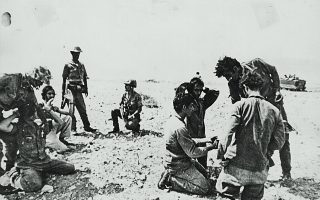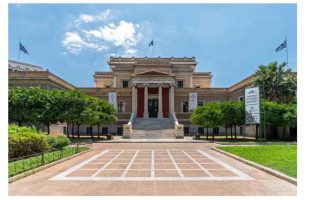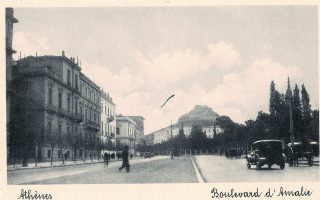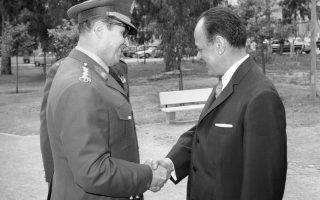Shedding light on the mystery of Max Merten
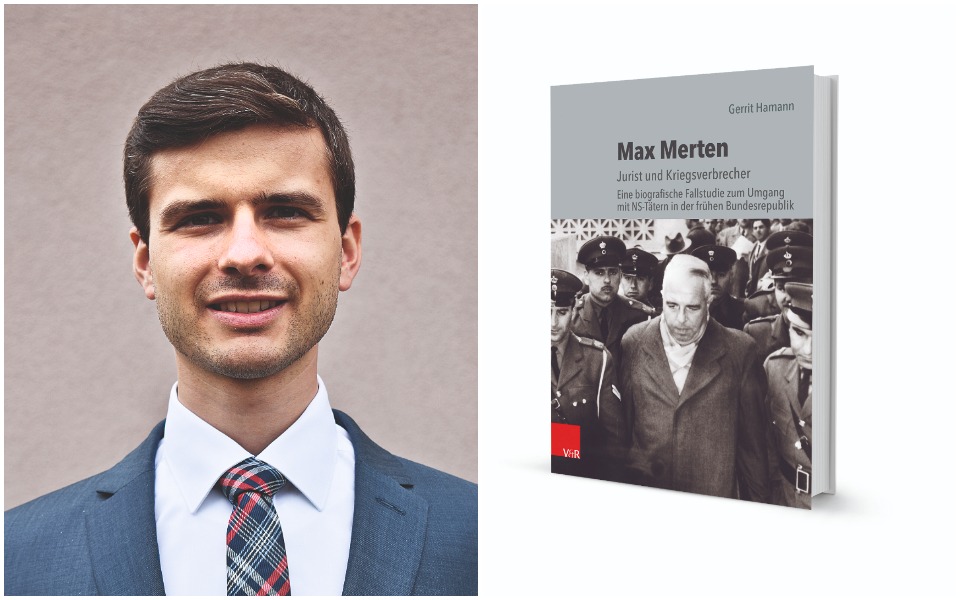
Did Max Merten, the head of Thessaloniki’s military administration (Kriegsverwaltungsrat) during the German occupation in World War II, have excellent relations with ambitious Greeks or not? Was he responsible for the pogrom of the northern port city’s Jews – or not? Did he hide treasure in Greece? And why did he visit Greece three times between 1954 and 1957, when he was arrested in Athens? His angry allegations, when he was arrested, that in occupied Thessaloniki he maintained contacts with later ministers of the post-war prime minister Konstantinos Karamanlis or even with him, were never proven. Merten was, after all, a “notorious liar.”
On the other hand, secret CIA documents from the 1960s that were declassified only in 2014 (but are disputed over the validity of the information they record) outline an ambitious 31-year-old lawyer who arrived in Thessaloniki in August 1942 and soon developed friendly relations with certain Greeks. Some of them played a role in post-war Greece.
The mystery of Max Merten still preoccupies Greece and Germany from time to time. Among other ventures, he worked in 1952, for less than a year, in a high position at the German Ministry of Justice. A decade ago, Gerrit Hamann, a 31-year-old lawyer and judge in Lower Saxony, visited Thessaloniki as a student and learned about Merten for the first time. Now he has written a book that has just been published by Vandenhoeck & Ruprecht in Germany titled “Max Merten: Jurist und Kriegsverbrecher” (Max Merten: Jurist and War Criminal).
His solid research was supported by the Rosenburg Project, a program developed by the German Federal Ministry of Justice to shed light on aspects of its operation in the early 1950s, when the view was that Nazism should be forgotten and almost all German citizens, apart from convicted war criminals, should make a fresh start. This is a book worth publishing in Greek. Hamann spoke to Kathimerini about the Greek side of the German Nazi who liked to be called “King of Macedonia.”
What was Merten’s true role in Thessaloniki? Did he pretend that he was helpful to Greeks or was he a philhellene?
As the chief of the administration unit of Befehlshaber Saloniki-Agais, Merten was responsible for the supervision of the Greek administration. The Germans did not have enough manpower to replace all Greek officials with German officials, so they had to limit themselves to a mere supervisory authority. Merten was subordinate to the commander and to the administration unit of Heeresgruppe E (Army Group E). But in fact he and his authority were quite independent because the army was not really interested in administration affairs. A distinction must be drawn between his attitudes toward the non-Jewish Greek population and the Jews: Merten’s attitude toward the Jews was perfidious and inhuman: He pretended to be their friend and protector and could even convince them of that. But in fact he betrayed them. If they had not trusted his promises, it would have probably been much more difficult to ghettoize them and make them obey the German orders. Without Merten’s perfidious strategy maybe more Salonican Jews would have survived the German occupation.
Was his behavior toward non-Jewish Greeks different?
Merten’s behavior toward the non-Jewish Greek population was different: He believed himself to be their friend. However, this does not mean he was the great benefactor he saw himself as. On the one hand Merten actually was sometimes helpful to the population in his region: For example, he protected the monks of Mount Athos from pillage, prevented the transfer of food to Athens to save the food for northern Greece, and he forced the Jews to hand their cemetery over to the Municipality of Thessaloniki as a building site (non-Jewish local politicians had been demanding that for many years). Furthermore, he had good contacts with the anti-communist Greek elites. For example, he was on cordial terms with Governor General Vasilios Simonidis, even beyond the 1940s. Finally, he even supported the anti-communist Greek resistance. He certainly wanted to improve his own reputation among the Greeks. Merten really liked his position as the uncrowned “King of Macedonia.”
Did he socialize with Greeks? Did he speak Greek?
Unfortunately, there are only a few personal documents regarding Merten’s time in Thessaloniki, dating from the late 1950s and 1960s. Bearing in mind that Merten was a notorious liar, their credibility is doubtful. Besides, there are only a few hints on his private life in Thessaloniki. A letter Merten wrote to a German journalist in 1959 describes an untiring Max Merten, who often worked all day and night, but nevertheless had a lot of contact with the Greeks. If we believe this report, Merten received many Greek visitors every day, who came with all kinds of requests and matters to his office. He himself did not speak Greek, which is why he was always accompanied by his interpreter Arthur Meissner, a German who had lived in Athens for many years before the war.
In 1957 Merten was arrested in Athens. Did he travel to Greece frequently after the war?
The first time Merten came back to Greece after the war was October 1954. He traveled to Athens as a lawyer to do some business. He felt safe because Thomas Ypsilantis had told him that there were not any inquiries in Greece against Merten. Furthermore, in 1947 Ypsilantis had taken care that Merten, who had been detained by the American occupation authorities, was released. So Merten thought nothing could happen to him in Greece. And actually nothing happened, not in 1954 and not in 1955, when he came again to Athens. I am convinced that in 1957 (his third visit to Greece after the war) it would not have happened either, had he not had the hubris to go to the Greek National Bureau on War Crimes and put in a good word for Arthur Meissner.
Is “Merten’s treasure” hidden somewhere in Greece or is that just another legend?
“Merten’s treasure” is a legend. There is not any serious hint that he hid any treasure in Greece during the war. And it is entirely unlikely that he hid any in the sea off the southwest Peloponnese (where divers sought it in 2000), because it would have been nearly impossible to organize and dissimulate the transport. Do not forget: Merten was neither the commander in chief nor the head of the military administration in Greece. He was only a higher administrative official in Thessaloniki. Besides, there are documents regarding the Jewish property which show that most of it was taken by the SS and probably sent to Germany. Of course that does not mean that Merten did not enrich himself illegally. In 1944 a German court martial even started inquiries against him because he was suspected of misappropriation and corruption (that was probably the main reason for his dismissal from Thessaloniki). Furthermore, during his processing in Athens a document appeared which stated that in 1946 (before the Americans detained him) he had given a box full of gold and jewels to his landlady and asked her to keep it until his release. Merten was able to convince the Greek court that this was not true. But when his landlady Maria Eisner was later interrogated by a German court, she testified that Merten actually had given her a box in 1946. So, there might have been a “treasure,” but if so it was certainly a small one and Merten took it to Germany.

